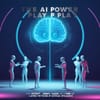The world of artificial intelligence is witnessing a power struggle among tech giants, with ChatGPT, Gemini, Claude, and other AI models vying for dominance. These AI models are not only competing with each other but also pushing the boundaries of what is possible with artificial intelligence.
ChatGPT, developed by OpenAI, has been making waves with its impressive language processing capabilities. Gemini, on the other hand, is a new AI model developed by Google that is designed to be more conversational and engaging. Claude, developed by Anthropic, is another AI model that is gaining attention for its ability to understand and respond to complex queries.
These AI models are shaping the future of artificial intelligence in various ways. They are being used to develop more sophisticated chatbots, virtual assistants, and language translation tools. They are also being used to analyze and generate text, images, and videos, and to develop more advanced AI-powered applications.
The competition among these AI models is driving innovation and pushing the boundaries of what is possible with artificial intelligence. As these models continue to evolve and improve, we can expect to see even more exciting developments in the field of AI. The future of artificial intelligence is looking bright, and it will be interesting to see how these AI models shape it.
The development of these AI models is also raising important questions about the future of work, the role of humans in a world with increasingly advanced AI, and the potential risks and benefits of advanced AI. As we continue to develop and deploy these AI models, it is essential to consider these questions and ensure that we are using AI in a way that benefits society as a whole.


